Happy Monday. Let’s get to the news.
Quick Hits: Today’s Top Stories
The Taliban continued to march through Afghanistan over the weekend, capturing Kabul on Sunday as the Afghan government collapsed and its president, Ashraf Ghani, fled the country. President Joe Biden deployed an additional 1,000 troops to the region in an effort to aid the evacuation of the United States’ embassy in the capital city.
Nearly 1,300 people are dead and tens of thousands more injured or displaced after Haiti was rocked by a 7.2-magnitude earthquake on Saturday. The country—still reeling from the assassination of its president last month—is expected to be hit by a tropical depression later today.
The National Oceanic and Atmospheric Administration released data on Friday showing that, globally, July 2021 was the hottest month in at least 142 years, outpacing July 2016, July 2019, and July 2020 by 0.02° F.
House Speaker Nancy Pelosi sent a letter to House Democrats on Sunday asking the Rules Committee to “explore the possibility” of advancing the bipartisan infrastructure deal and Democrats’ $3.5 trillion reconciliation package simultaneously. Two days earlier, a group of nine centrist House Democrats had made clear to Pelosi they wouldn’t vote for the larger package until the bipartisan deal was signed into law.
A federal judge on Friday rejected a request to block the Biden administration’s revised eviction moratorium on technical grounds, but the landlord groups involved appealed to the D.C. Circuit Court on Saturday and could receive a ruling within the week.
New York Assembly Speaker Carl Heastie said in a statement Friday that lawmakers would suspend their impeachment investigation into Gov. Andrew Cuomo after the governor announced his resignation last week. “We have been advised ... of the belief that the constitution does not authorize the legislature to impeach and remove an elected official who is no longer in office,” the statement read.
A 22-year-old man shot and killed five people in the United Kingdom on Friday—including his own mother and a 3-year-old girl—in the country’s largest mass shooting in over a decade. The gunman allegedly shot and killed himself before police arrived.
At least 28 were killed and dozens more injured when a fuel-filled warehouse exploded in northern Lebanon on Sunday.
Canadian Prime Minister Justin Trudeau triggered a snap election over the weekend, gambling that his Liberal Party will pick up enough seats in the September 20 vote to regain a majority in Parliament.
Kabul Falls, Ghani Flees, Taliban Assumes Control
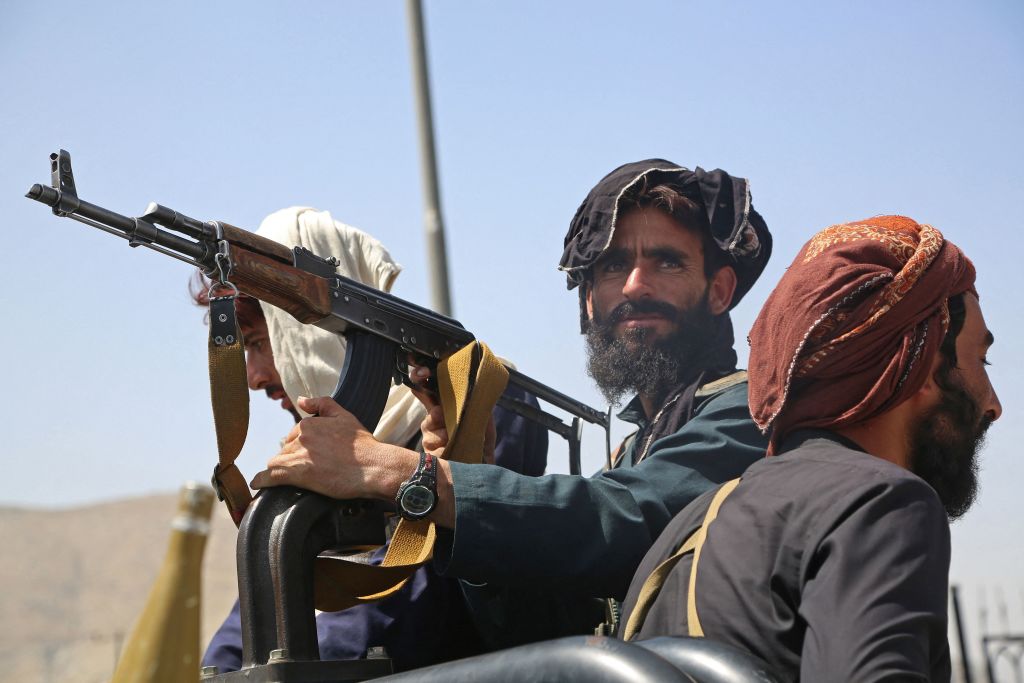
For the first time in nearly 20 years, Kabul has fallen under Taliban control.
When we wrote to you Friday about the Taliban’s blitzkrieg into Afghanistan’s urban centers, the jihadist group had seized 13 of Afghanistan’s 34 provincial capitals over the course of one week. By the end of the day Friday, that number had grown to 16. Over the weekend, the Taliban captured the provinces of Laghman, Maimana, Paktia, Paktika, Kunar, Nangarhar, and Balkh before making a final drive into Kabul. As of early Monday morning, Panjshir is the last government holdout and Parwan remains contested.
Bagram Air Base, the central hub of the Pentagon’s military operations in Afghanistan for nearly two decades, also came under Taliban occupation. The site’s prison hosts about 5,000 Taliban and Islamic State inmates.
Thousands of desperate Afghan civilians flooded Hamid Karzai Airport’s tarmac Sunday, pushing onto at-capacity commercial flights in a last-ditch effort to escape the Taliban’s takeover of Kabul. Reports of Afghan families destroying paper trails connecting them to the U.S., including visa documentation, emerged on Twitter.
The last American diplomats at the U.S. embassy, meanwhile, burned sensitive documents, lowered the flag, and departed via helicopter in scenes many have compared to the Vietnam War’s humiliating end in Saigon. According to local news reports and video footage, several Afghans fell from the sky to their deaths on Monday after attempting to cling to the landing gear of a C-17 Air Force transport plane as it took off in Kabul.
Afghan President Ashraf Ghani fled the country Sunday, seeking temporary refuge in neighboring Tajikistan. Later in the day, Ghani confirmed his resignation in a post to Facebook. “Today, I came across a hard choice; I should stand to face the armed Taliban who wanted to enter the palace or leave the dear country that I dedicated my life to protecting,” Ghani wrote in Pashto.
Videos of heavily armed Taliban fighters reciting Quran verses at Kabul’s presidential palace painted a visual of Afghanistan’s stark new reality: A return to rule by Islamic extremism.
Former President Hamid Karzai announced on Sunday the formation of a “coordinating council—including Abdullah Abdullah, the second-highest ranking official in Afghan government, and Gulbuddin Hekmatyar, a former warlord and leader of the Hesb-i-Islami party—to ensure a ‘peaceful transfer of power.’” But according to Reuters, the Taliban has no intention to establish a transitional government or share power.
By Sunday night, Hamid Karzai Airport was one of the few areas of Kabul not in Taliban hands, though commercial flights were halted after it sustained fire and U.S. citizens were advised to shelter in place by the embassy. One thousand U.S. troops, in addition to the 5,000 already stationed there, will be deployed to take over air traffic and evacuate Americans and Afghans eligible for U.S. Special Immigrant Visas (SIVs). The Biden administration continues to plead with Taliban leadership to ensure that the U.S. embassy is spared in the onslaught.
In a statement Sunday, a Taliban spokesman promised the safety of “embassies, diplomatic missions, institutions, and residences of foreign nationals.” The group also urged Afghan people not to flee, promising that all “are forgiven and safe” and no one “will be retaliated against,” according to Middle East Eye reporter Ragip Soylu.
But preliminary reports out of Kabul (and indications from other provinces that have fallen under Taliban control) seem to suggest otherwise. Imprisonment, sexual violence, and politically motivated executions have already begun and are expected to skyrocket for the millions of Afghans trapped in the country.
The Taliban returns to power in many ways stronger than it was in the days before the 9/11 attacks. Having spent the better part of the last two decades promising an improbable triumph over a global superpower, it has delivered, sending U.S. forces home—after thousands of casualties and trillions of dollars—in utter humiliation.
And how did America’s political leaders respond? In a manner sadly befitting this ugly moment in American history—by trading partisan attacks in transparent attempts to avoid blame. President Biden remained at Camp David over the weekend, making no public appearances and issuing only a paper statement insisting that Donald Trump’s deal with the Taliban had left him no choice but to cut and run.
“I inherited a deal cut by my predecessor … that left the Taliban in the strongest position militarily since 2001 and imposed a May 1, 2021 deadline on U.S. Forces. Shortly before he left office, he also drew U.S. Forces down to a bare minimum of 2,500,” Biden wrote. “When I became President, I faced a choice—follow through on the deal, with a brief extension to get our Forces and our allies’ Forces out safely, or ramp up our presence and send more American troops to fight once again in another country’s civil conflict.”
On Sunday, Biden dispatched his Secretary of State, Antony Blinken, to CNN’s State of the Union, NBC’s Meet the Press, and ABC’s This Week to repeat this talking point.
“We inherited the deadline negotiated by the previous administration. That deadline was May 1,” Blinken told NBC’s Chuck Todd. “And the idea that we could have maintained the status quo beyond May 1, that the President had decided to stay, I think is a—is a fiction.”
On CNN, Blinken outlined how the administration perceived an extended stay in the region would pan out. “We would have been back at war with the Taliban,” he told Jake Tapper. “And I would probably be on this program today explaining why we were sending tens of thousands of American forces back into Afghanistan and back to war, something the American people simply don’t support.”
But when pressed by Tapper on why the withdrawal itself was so disastrous—pulling troops out only to send them back in a panic—Blinken had no answers. “Look, I think it shows that we were prepared, the president was prepared for every contingency as this moved forward,” he said. “We had those forces on hand. And they were able to deploy very quickly, again, to make sure that we could move out safely and securely as the situation on the ground changed.”
Former Secretary of State Mike Pompeo appeared on Fox News Sunday to denounce the Biden administration’s “pathetic blame-shifting” and offer a revisionist and misleading account of Trump administration diplomacy with the Taliban.
“This is not the way leaders lead, by pointing backwards,” Pompeo said. “We had a bad deal. We inherited the JCPOA. We got out of it. We secured America from the risk of Iran. We inherited a horrible deal in Syria where ISIS controlled real estate the size of Great Britain. We crushed them,” he continued, comparing his Taliban deal—perhaps unwittingly—with the ill-fated diplomatic agreements of the Obama administration. “Every president confronts ... challenges. This president confronted a challenge in Afghanistan. He has utterly failed to protect the American people from this challenge.”
As Thomas Joscelyn has been writing in Vital Interests since the deal’s signing on February 29, 2020, the agreement lent the Taliban unnecessary political capital and international stature with few substantive returns or enforcement mechanisms. The Trump administration excluded the Afghan government from the negotiations, undermining its legitimacy while committing our erstwhile ally to specific actions—including the release of 5,000 Taliban prisoners—that would hasten its demise. Stalling for more than a year since in bad faith negotiations with the Afghan government in Doha, the Taliban rebuilt its forces and moved into rural areas surrounding provincial capitals, all while retaining ties to al-Qaeda.
Beginning with Biden’s drawdown in April, the U.S. had left the Afghan government’s ranks depleted and demoralized. Between ammunition shortages, dated weaponry, and the withdrawal of U.S. air support and intelligence, Afghanistan’s security forces were woefully unprepared to ward off the Taliban threat for long.
“The Biden Administration and Secretary Blinken are claiming that they inherited a deal they couldn’t change (they did, altering timelines), that it was extremely unlikely the Taliban would control the whole country (they do), and that they have a sufficient plan for protecting us from terrorists after the fact (they don’t),” Jason Killmeyer, former Chief of Staff of Global Defense, Security & Justice at Deloitte, told The Dispatch.
Biden and his team championed their ascendancy into power earlier this year with the oft-repeated phrase “America is back.” This cannot be what they had in mind.
Worth Your Time
Politico granted an Afghan journalist anonymity to write a brief essay on his experience hiding in Kabul over the weekend. “We could never have imagined and believed that this would happen. We could never imagine we could be betrayed so badly by the U.S. The feeling of betrayal … I dedicated my life to the [American] values,” he wrote. “There was a lot of promise, a lot of assurance. A lot of talk about values, a lot of talk about progress, about rights, about women’s rights, about freedom, about democracy. That all turned out to be hollow. Had I known that this commitment was temporary, I wouldn’t have risked my life. … I don’t care if it’s the Trump administration or the Biden administration. I believed in the U.S. But that turned out to be such a big mistake.”
Although Joe Biden is far from the first president to make noises about an Afghanistan withdrawal, Bret Stephens argues in the New York Times that whatever happens next—massacres in Kabul, the repression of Afghan women and girls, the resurgence of jihadists, the degradation of the United States’ standing in the world—Biden owns it. “It won’t matter that he is carrying through on the shambolic withdrawal agreement negotiated last year by the Trump administration, with the eager support of Trump’s isolationist base, and through the diplomatic efforts of Trump’s lickspittle secretary of state, Mike Pompeo,” Stephens writes. “This is happening on Biden’s watch, at Biden’s insistence, against the advice of his senior military advisers and with Biden’s firm assurance to the American people that what has just come to pass wouldn’t come to pass.”
Presented Without Comment
Also Presented Without Comment
Toeing the Company Line
Avid Dispatch readers may have noticed a trend over the past few days. Thomas Joscelyn’s Vital Interests on Friday (🔒) interpreted the fall of Afghanistan through the lens of intelligence failures. In the G-File later that day, Jonah expressed his infuriation with the situation by highlighting the “dark, depressing comedy” of it all. And on Sunday, David’s French Press positioned the Taliban’s march on Kabul within the scope of history: “America is in the process of watching a movie it’s seen before. Political leaders remove troops from a faraway country, hoping to end an unpopular war. The enemy, committed to an indefinite fight, gains new life from the American withdrawal and attacks. The consequences are splashed across world media—mass killings, child rape, and the brutal darkness of extremist religious tyranny.”
Several solid pieces on the site today continue that pattern: Chris Stirewalt breaks down the domestic politics that led to our unseemly Afghanistan withdrawal, and Kevin Carroll takes a grim look at the likely consequences for America’s international reputation. On a lighter and more surreal note, Khaya Himmelman reports from Mike Lindell’s long-promised “cyber forensic symposium,” where promised evidence that would reinstate former President Donald Trump never materialized.
Let Us Know
Do you think the Biden administration will pay a political price for the chaos in Afghanistan? Or are Americans simply ready to bring our troops home from the Middle East, consequences be damned?
Reporting by Declan Garvey (@declanpgarvey), Andrew Egger (@EggerDC), Charlotte Lawson (@charlotteUVA), Ryan Brown (@RyanP_Brown), Harvest Prude (@HarvestPrude), and Steve Hayes (@stephenfhayes).
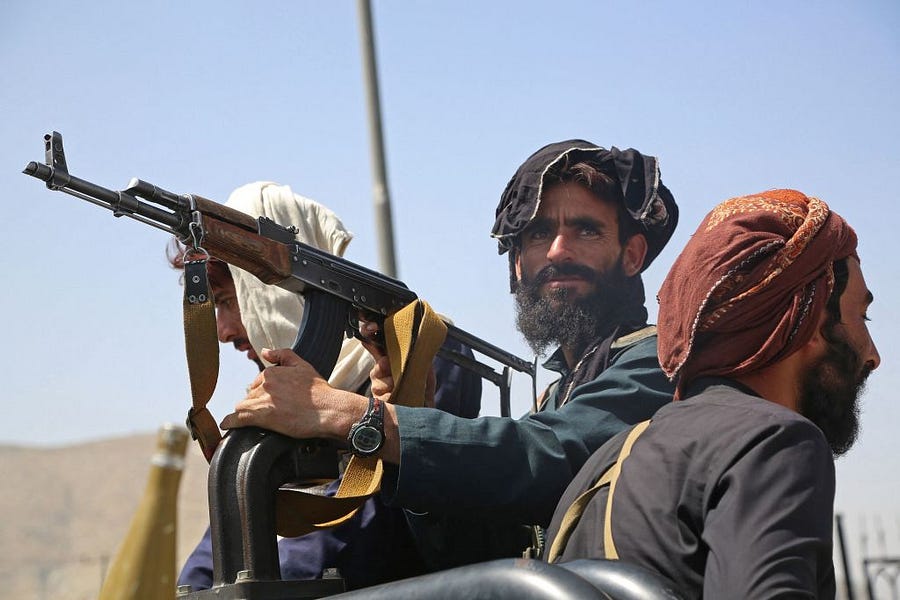
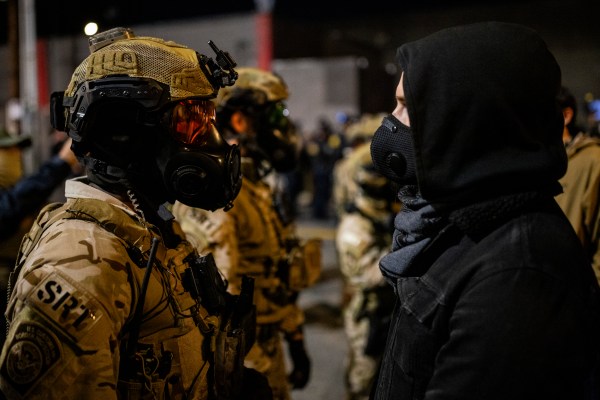


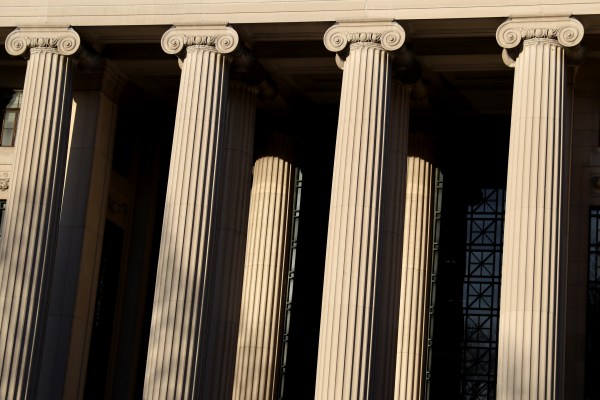
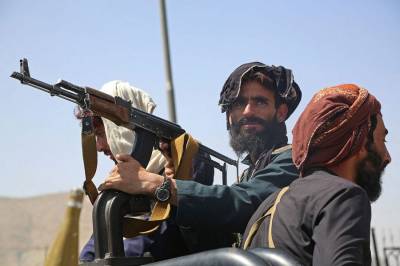
Please note that we at The Dispatch hold ourselves, our work, and our commenters to a higher standard than other places on the internet. We welcome comments that foster genuine debate or discussion—including comments critical of us or our work—but responses that include ad hominem attacks on fellow Dispatch members or are intended to stoke fear and anger may be moderated.
With your membership, you only have the ability to comment on The Morning Dispatch articles. Consider upgrading to join the conversation everywhere.